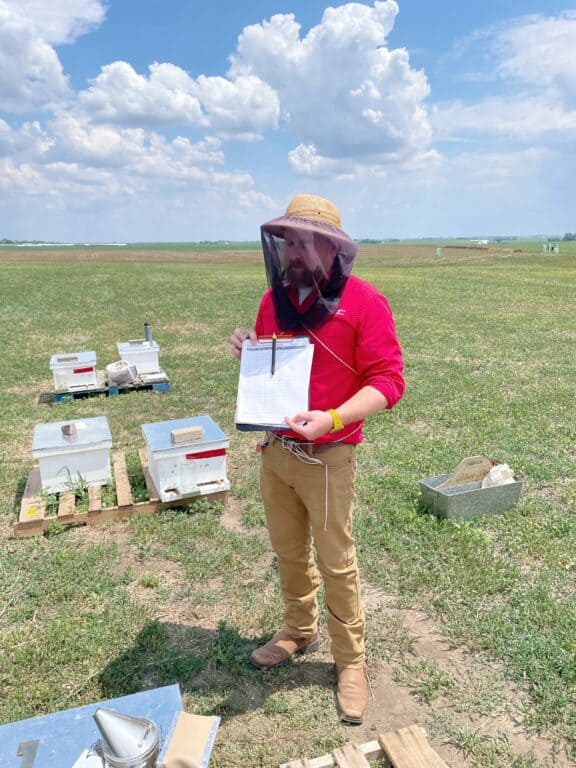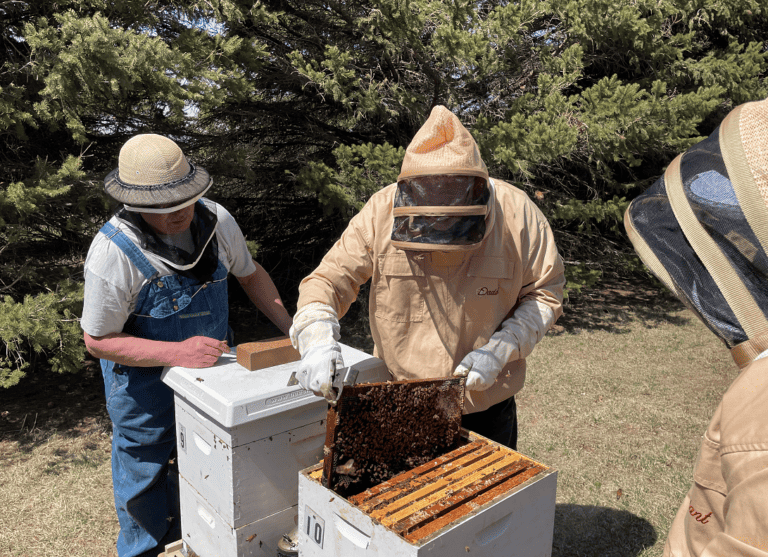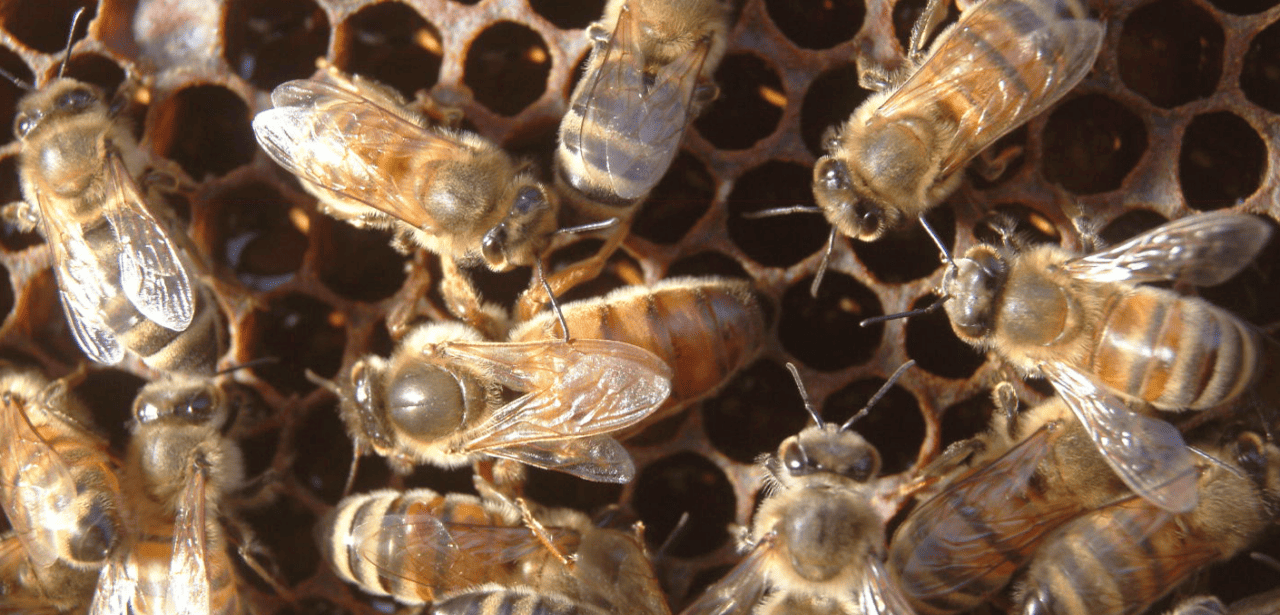When I first started beekeeping with just two colonies, it was easy to remember what went on in my hives from week to week and month to month. That was years ago, and to this day, I still remember both colonies surviving the winter only to die suddenly in the spring. And I still recall starting over in my second year of beekeeping: obtaining one colony by capturing a swarm, and one by removing bees and comb from the porch wall of a local farmer’s house.
Compare that to last year when I pulled my honey supers and found myself wondering why a group of them contained mostly plastic one-piece frames. Why did I put those in there? I usually only put that style frame in my brood boxes. I mean, you’d think I would remember, right? I seriously wondered if some mischievous beekeeper had been sneaking into my hives just to play tricks on me! I wish I could say it was an isolated incident, but I have also been known to mistake a full colony of bees for empty equipment. Picture me throwing my back out and saying “Why are these boxes so heavy? Wait a minute, did a swarm move in there or did I move a colony here a couple of months ago and forget about it?” Maybe it’s age or maybe it’s lack of attention span, I don’t know, but one thing is for sure — I need to keep better records.

You probably know that taking the time to record inspection notes and management actions has the potential to make you a better beekeeper. But you may not know that it can also make you a better citizen scientist. I started taking BIP’s annual Loss and Management Survey as soon as I was aware of it, probably in my second year of beekeeping. I felt then, and I still do now, that the survey provides important insights into beekeeping that do not exist anywhere else. I have always tried to provide accurate information when taking the survey.
Now, with an increased number of colonies and a decline in cognitive functionality (that’s a fancy way to say “a failing memory”), it is even more important to keep records throughout the year so I can take better care of my bees and have accurate information to refer back to when I take the survey. It will also help me remember what happened with my bees over the year, and make taking the survey faster. This year, I am determined to enhance my record-keeping by taking notes for each colony I inspect every time I check my bees. Also, I’ll be jotting down the bigger picture stuff about my beekeeping every now and then. It’s all about getting a better handle on how my beekeeping year is progressing. You can do this too!
Here is the information I am committed to recording on a regular basis:
- How many colonies do I currently own?
- How many colonies did I obtain from outside my operation since I last recorded information?
- How many colonies did I add by making splits since I last recorded information?
- How many colonies did I sell or give away since I last recorded information?
- How much was my total decrease in colonies due to intentionally combining my colonies since I last recorded information?
- How many colonies died since I last recorded information? And what factors do I think were the most prominent cause(s) of colony death?
- What states and territories are my colonies currently in and where have they been since I last recorded information?
- Details of feeding since I last recorded information? What was fed?
- Since I last recorded information, what signs of pests or diseases did I observe, along with the specific pests or diseases identified.
- Colonies treated since I last recorded information? What was treatment for, what was used for treatment?
- Since I last recorded information, how many queens did I add to colonies and were they queen cells, mated queens, virgin queens, or other methods?
Additionally, there are a few specific times of year when certain information should be recorded:
Start of Beekeeping Season
- On what date did I start making splits this year?
- How many colonies did I own before I started making splits?
- Estimate the strength of my average colony in number of frames of bees before I started making splits.
- How many splits did I make?
October 1
- Estimate the strength of my average colony on October 1st in number of frames of bees.
I hope you will also commit to keeping better records this year! By diligently recording these details, we can enhance our beekeeping practices, contribute to scientific understanding, and ensure accurate data for the Loss and Management Survey.

